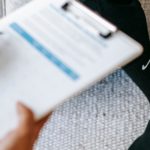Substance use disorder (SUD) can affect your ability to function from day to day. The symptoms of SUD make it challenging to focus on learning new skills or developing routines that will improve your circumstances. As a result, at Newport Beach Recovery Center, we encourage clients to collaborate with our care team to determine what essential life skills they need to learn, practice, or expand. We use a combination of psychotherapy, peer support, and experiential techniques to give clients the tools they need to heal and grow.
What Are Essential Life Skills?
Life skills can be practical and involve household tasks, budgeting finances, self-care, physical wellness, and job training; however, they can also be abstract and include a commitment to recovery, self-awareness, and positivity. According to the Proceedings of the National Academy of Sciences (PNAS), “Life skills refer to a set of personal characteristics and capabilities that are thought to increase chances of success and wellbeing in life.” For example, life skills include:
- Persistence
- Conscientiousness
- Self-control and emotional stability
- Social skills
- Self-confidence and self-efficacy
- Verbal and nonverbal communication
- Maintaining physical health
Clients who need more time to build essential life skills after treatment can subsequently take advantage of the sober community at Newport Beach Recovery Center. The facility provides a safe space while clients prepare for independent recovery.
Benefits of Essential Life Skills
The more skills you have at your disposal during treatment and recovery, the greater the outcome. Essential life skills can make it easier to cope with stressors and maintain emotional stability during difficult moments in recovery. To emphasize, some of the benefits include:
- Greater self-efficacy
- Improved problem-solving and conflict management
- Increased ability to maintain financial independence
- Better self-accountability
- Career advancement and job stability
- Decreased risk of relapse
All these will improve your day-to-day functioning in recovery. You’ll also increase your self-confidence because you’ll feel capable of handling problems that pop up.
Essential Life Skills Reduce the Risk of Relapse
According to the Yale Journal of Biology and Medicine, “When recovering individuals do not develop healthy life skills, the consequence is that they also may be unhappy in life, but that can lead to relapse.” Newport Beach Recovery Center ensures that all clients establish coping skills and other tools to help them move forward in their recovery and healing. In general, learning life skills encourages you to experience new things. It offers you an alternative perspective on yourself and others.
Clients are usually surprised by how a new perspective can encourage positive behaviors and improve their quality of life. Essential life skills can reduce the risk of relapse by helping you feel more positive about yourself and your circumstances. Likewise, they give you the necessary traits to succeed at achieving personal and professional goals. What’s more, the skills provide a solid foundation for personal growth.
5 Essential Life Skills Practiced at Newport Beach Recovery Center
Substance misuse can lead to underdeveloped social skills and an inability to live independently. However, not everyone with a SUD has noticeable social issues, and some people might only need help developing skills to improve self-care, relapse prevention, and physical health.
#1 Physical and Emotional Self-Care
To start with, self-care will reduce your relapse risk by ensuring you feel better about yourself and your recovery. Physical and emotional self-care can include:
- Prioritizing your healing, mental health, and physical wellness
- Getting regular exercise, hydration, and rest
- Finding a quiet place to practice mindfulness
- Knowing when to set boundaries with others
- Reaching out for social support
#2 Nutritional Health and Physical Wellness
Even more, physical wellness impacts your emotional well-being during recovery. The care team at Newport Beach Recovery Center can provide you with nutritional counseling or a referral to a nutritionist who can help you determine an ideal diet and exercise routine. Additionally, other factors that impact physical health include:
- Proper hydration
- Nutritional meals
- Quality sleep
- Weekly exercise
#3 Verbal and Nonverbal Communication
Equally important, knowing how to communicate effectively with others reduces the risk of conflict and lowers social stress and anxiety. Healthy communication improves your capacity to share ideas, communicate needs, and actively listen to others. We, specifically, help clients develop verbal and nonverbal communication that prioritizes compassion and honesty.
#4 Social and Relationship Skills
Similarly, it’s important to know how to interact with others. Social skills allow you to communicate effectively. They’re essential to creating healthy personal and professional relationships. Additionally, they make it easier to resolve conflicts, establish social boundaries, and increase self-efficacy. Support from peers and loved ones will help you maintain recovery. Ultimately, social skills can help you cultivate those critical relationships.
#5 Care for a Household
Lastly, taking care of a household requires knowledge, resources, and motivation. We can teach you to do the following:
- Manage money and prioritize spending
- Do weekly tasks like writing a check or going grocery shopping
- Create sustainable routines for completing household chores
- Prepare nutritional meals
- Maintain cleanliness
All in all, the risk of relapse decreases if you feel confident in your ability to take care of yourself and your family. Learning the necessary skills to care for a household increases essential skills like self-efficacy and persistence.
Essential life skills ensure that people recovering from substance use disorder feel comfortable maintaining sobriety during aftercare. Treatment at facilities like Newport Beach Recovery Center uses individual therapy, peer support, group therapy, and educational classes to reveal areas where clients can expand their knowledge and learn new coping skills. The learned abilities will keep you making progress in your recovery and personal growth. Overall, essential life skills can improve relationships by making it easier to share ideas, maintain social boundaries, resolve conflicts, and remain objective while problem-solving issues. We believe that you have the potential to maintain long-term sobriety if you use their resources to build a healthy support system and sustainable routines. Certainly, by learning essential life skills, you can protect yourself from relapses and improve your overall quality of life. To learn more, contact Newport Beach Recovery Center by calling us at (855) 316-8740.



